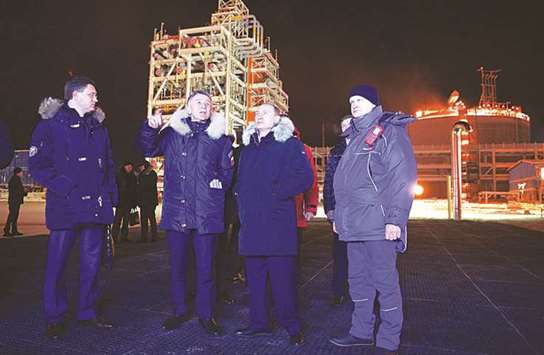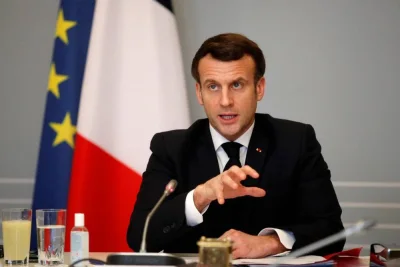Opec and Russia will exit from oil production cuts very smoothly, possibly extending the curbs in some form to avoid creating any new surplus in the market, the Russian energy minister told Reuters.
Alexander Novak also said in comments cleared for publication yesterday that he saw no direct connection between the oil cuts and Saudi Arabia’s plan to list Saudi Aramco, the world’s top oil producer.
“Everyone in the market is interested in achieving balance,” Novak said in response to a question on whether Saudi Arabia could abruptly exit the cuts as soon as it lists Aramco sometime in 2018.
The share sale promises to be the world’s biggest.
The Organisation of the Petroleum Exporting Countries and other large oil producers led by Russia agreed last month to extend until the end of next year their deal to cut a combined 1.8mn barrels per day of output.
The move is aimed at clearing a global stocks overhang and propping up oil prices.
Russia and Saudi Arabia have significantly improved bilateral ties this year, resulting in a visit to Moscow by Saudi King Salman accompanied by a large political and business delegation.
Oil is a key source of budget revenue for both countries and Novak said he expected prices to fluctuate at $50-$60 per barrel next year.
On Thursday, King Salman and Russian President Vladimir Putin held a telephone conversation during which they agreed to continue close cooperation to ensure stability on global hydrocarbon markets.
Opec and Russia together produce more than 40% of the world’s oil.
Moscow’s cooperation on output cuts with Opec, arranged with Putin’s help, has been crucial in roughly halving an excess of global oil stocks since January.
With oil prices rising above $60, Russia has expressed concern that an extension for the whole of 2018 could prompt a spike in crude production in the United States, which is not participating in the deal.
Russia has been pushing for a timely exit from the cuts to make sure the market doesn’t overheat. Novak said it would take time for the deal to be brought to an end.
“Detailed parameters will be discussed by the time we approach balance.
There could be different timeframes, depending on forecasts of supply and increasing demand in global markets,” he said. “We have a common understanding on this issue but I don’t want to discuss hypothetical scenarios now,” Novak said.
“There is a consensus among the (oil) ministers that we should avoid oversupply on the market when exiting the deal.”
Novak said there was an option to extend the deal beyond 2018, while he sees markets balancing in the third or fourth quarters of next year.
“Our task, above all, is (to achieve a) sustainable demand and supply balance.
We aim to reach this result, this could be achieved, if things are going well... during 2018,” Novak said.
Saudi Energy Minister Khalid al-Falih said on Wednesday it was premature to discuss any changes to the Opec-led supply pact as market rebalancing was unlikely until the second half of 2018. Novak said he expected Russian oil output to stay at about 547mn tonnes (10.98mn bpd) next year but added the country would export more refined products and less crude as it was upgrading its refineries.
He added that he expected US oil output to rise by 0.6mn bpd next year.”But they also have rising demand, which is partially offseting the rise in production,” he said.

Russian President Vladimir Putin is escorted by Energy Minister Alexander Novak and co-owner of Russian gas producer Novatek Leonid Mikhelson, as he inspects a construction site of Yamal LNG, Russia’s second liquefied natural gas plant, in the Arctic port of Sabetta, Yamalo-Nenets district, Russia. Opec and Russia will exit from oil production cuts very smoothly, possibly extending the curbs in some form to avoid creating any new surplus in the market, the Russian energy minister told Reuters yesterday.


